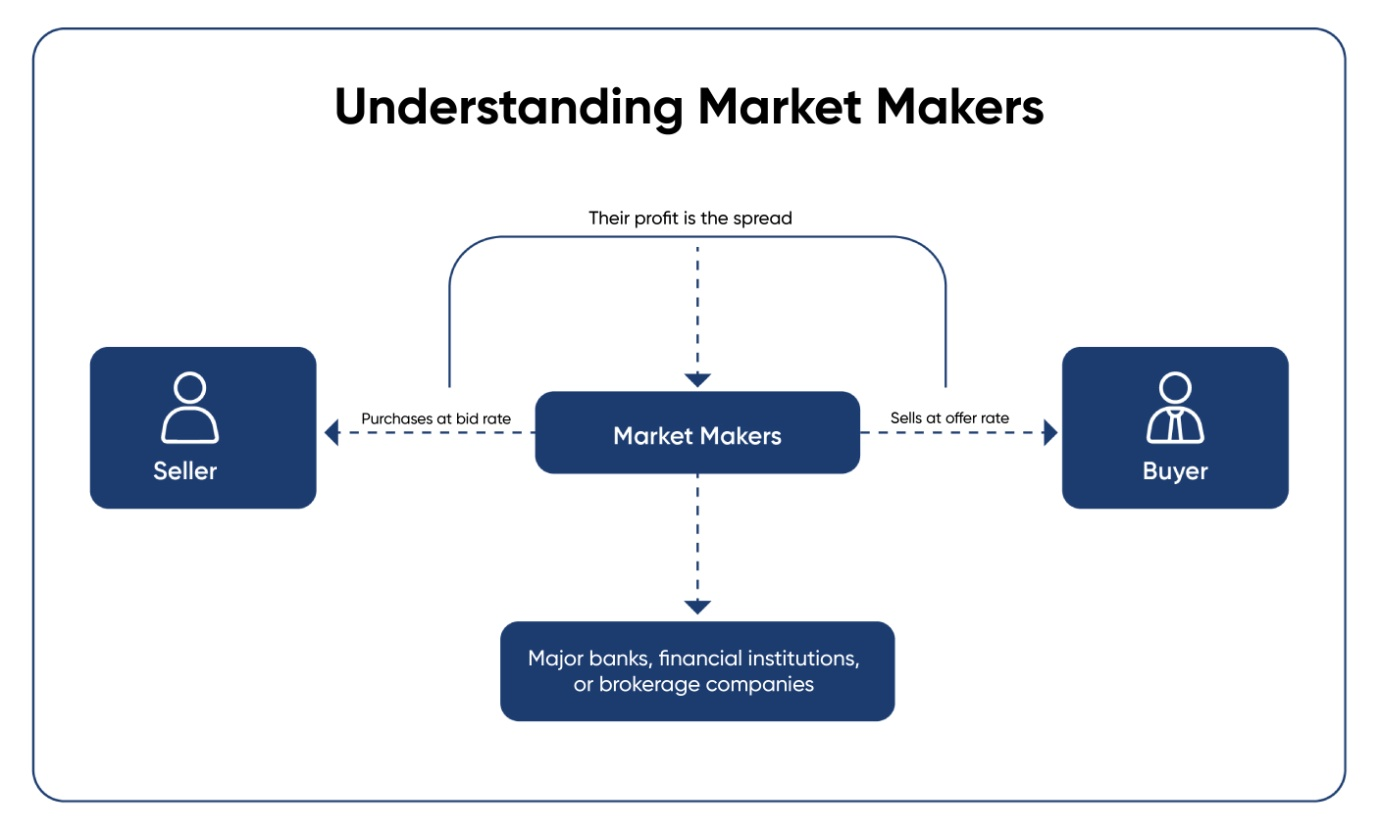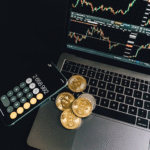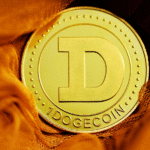
Market makers are pivotal to the functionality and efficiency of digital asset markets. By providing liquidity, they ensure that traders can buy and sell assets with minimal delay and at consistent prices. Market makers help bridge the gap between buyers and sellers by maintaining a constant presence in the market, quoting prices at which they are willing to buy (bid) and sell (ask) cryptocurrencies.
Ensuring Liquidity and Stabilizing Prices
The Essential Role of Market Makers
Market makers are crucial in ensuring liquidity and stabilizing cryptocurrency prices. Their continuous presence in the market allows them to provide the necessary volume to execute large orders without causing significant price shifts. By always being ready to buy or sell, market makers smooth out the volatility inherent in cryptocurrency markets, providing more stable and reliable pricing for all market participants.
(Read more here: Utility Tokens Unveiled: Driving Value and Innovation in Blockchain Networks
How Market Makers Influence Price Stability
Market makers reduce price fluctuations by maintaining narrow bid-ask spreads—the difference between the prices at which they are willing to buy (bid) and sell (ask). This activity not only facilitates smoother transactions but also instills confidence among traders about the availability of fair pricing, regardless of market conditions. When sudden surges in buy or sell orders occur, market makers absorb these excesses, preventing drastic price changes and helping stabilize the market.

Deepening Market Liquidity
A key aspect of market makers’ role is enhancing the depth of market liquidity. They ensure that sufficient levels of trading activity are maintained, allowing other participants to execute trades efficiently without large impacts on the asset’s price. This deep liquidity pool is essential for the health of financial markets, especially in cryptocurrencies, where market depth can sometimes be lacking. The robust presence of market makers helps mitigate the risk of slippage—where the lack of liquidity leads to a larger-than-expected price change upon order execution.
Technological and Strategic Enhancements
Market makers utilize advanced algorithmic trading strategies that allow them to adjust their positions dynamically based on real-time market conditions. These high-frequency trading algorithms help them manage their inventory and hedge against potential losses due to sudden price movements. Moreover, by using statistical arbitrage and pairs trading strategies, market makers can exploit temporary inefficiencies in prices between related assets, thereby maintaining order and consistency in pricing.
Regulatory and Operational Challenges
Despite their critical role, market makers face numerous challenges, including high operational costs and the need for significant capital to manage large volumes of trades. They must also navigate a complex regulatory environment that varies significantly across different jurisdictions. These challenges require continuous adaptation and sophisticated risk management to sustain their operations effectively.

Market Making Strategies
Market making in the cryptocurrency sector employs a blend of sophisticated strategies designed to optimize liquidity provision and minimize exposure to rapid market fluctuations. Here’s an in-depth look at some of the advanced strategies used by crypto market makers:
Algorithmic and High-Frequency Trading (HFT)
Market makers often use algorithmic trading techniques, which are pivotal in managing orders across multiple trading platforms efficiently. These algorithms are programmed to make high-speed decisions based on market conditions, enabling market makers to adjust their bids and ask instantly to capitalize on small price discrepancies. High-frequency trading (HFT) is particularly prominent, allowing market makers to execute a large number of orders at very fast speeds, often in milliseconds. This capability is crucial for maintaining competitive spreads and providing continuous liquidity.
Arbitrage Strategies
Arbitrage involves exploiting price differences between different markets or exchanges. Market makers can use spatial arbitrage, where they buy a cryptocurrency at a lower price on one exchange and sell it at a higher price on another. This strategy, which includes cross-exchange and triangular arbitrage, is relatively risk-free as it capitalizes on existing price discrepancies without speculative risk.
Statistical Arbitrage and Pairs Trading
This strategy uses mathematical models to identify and exploit price inefficiencies between closely related assets. By simultaneously buying and selling these correlated assets, market makers can hedge their positions and gain profits from the convergence of their prices. This approach relies heavily on complex algorithms and real-time data analysis to execute trades effectively.

Order Book Management
Effective management of the order book is crucial for market makers. By analyzing historical trading data and current market conditions, market makers can predict short-term price movements and adjust their strategies accordingly. This involves setting strategic limit orders and adjusting bid-ask spreads based on anticipated market movements. Monitoring the order book helps in understanding liquidity levels, market depth, and the potential impact of large orders on market prices.
Risk Management Techniques
Given the volatile nature of cryptocurrency markets, risk management is integral to successful marketmaking. Market makers must employ strategies to mitigate losses during unfavorable market conditions. This includes setting trading limits, using stop-loss orders, and diversifying across various cryptocurrencies and trading platforms to spread risk.
As the cryptocurrency market matures, the role of market makers is evolving. The introduction of automated market makers (AMMs) on decentralized exchanges has started to change the landscape. These automated systems use algorithms to provide liquidity through a mechanism different from traditional market making, relying on liquidity pools rather than individual market makers. This innovation is expanding the possibilities for liquidity provision but also comes with new challenges, such as the risk of impermanent loss in volatile market conditions.
Market makers play an essential role in the health and efficiency of the cryptocurrency markets. They not only provide the liquidity needed for smooth trading but also help stabilize prices, benefiting all market participants. As technology advances and the regulatory environment evolves, the strategies and impact of market makers will also adapt, continuing to shape the future of digital asset trading.
Embrace the New Era of Digital Asset Management
Join Kenson Investments and explore innovative strategies in the blockchain and digital assets sector. Our dedicated team of digital asset specialists is here to help you navigate through the complexities of blockchain technology and digital asset portfolios. We are committed to providing a legitimate and transparent service, enhancing your experience in the dynamic world of cryptocurrency investment solutions and defi finance consulting services.
Discover how we’re moving the industry forward. Join us today!














